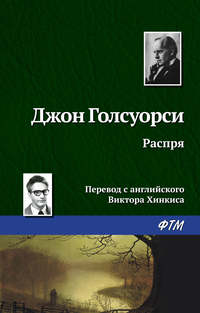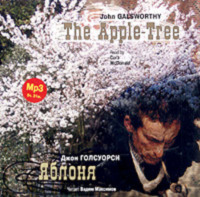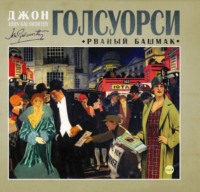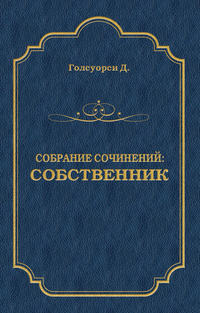 полная версия
полная версияAnother Sheaf
But against this indefinite general rusting of mind machinery in the soldier-workman's life away from the fighting line certain definite considerations must be set. Many soldiers will form a habit of reading – in the new armies the demand for books is great; some in sheer boredom will have begun an all-round cultivation of their minds; others again will be chafing continually against this prolonged holding-up of their habitual mental traffic – and when a man chafes he does not exactly rust; so that, while the naturally lazy will have been made more lazy, the naturally eager may be made very eager.
The matter of age, too, is not unimportant. A soldier of twenty, twenty-five, even up to thirty, probably seldom feels that the mode of life from which he has been taken is set and permanent. He may be destined to do that work all his days, but the knowledge of this has not so far bitten him; he is not yet in the swing and current of his career, and feels no great sense of dislocation. But a man of thirty-five or forty, taken from an occupation which has got grip on him, feels that his life has had a slice carved out of it. He may realise the necessity better than the younger man, take his duty more seriously, but must have a sensation as if his springs were let down flat. The knowledge that he has to resume his occupation again in real middle age, with all the steam escaped, must be profoundly discouraging; therefore I think his mental activity will suffer more than that of the younger man. The recuperative powers of youth are so great that very many of our younger soldiers will unrust quickly and at a bound regain all the activity lost. Besides, a very great many of the younger men will not go back to the old job. But older men, though they will go back to what they were doing before more readily than their juniors, will go back with diminished hope and energy, and a sort of fatalism. At forty, even at thirty-five, every year begins to seem important, and several years will have been wrenched out of their working lives just, perhaps, when they were beginning to make good.
Turning to the spells of service at the front – there will be no rusting there – the novelty of sensation, the demand for initiative and adaptability are too great. A soldier said to me: "My two years in depôt and camp were absolutely deadening; that eight weeks at the front before I was knocked over were the best eight weeks I ever had." Spells at the front must wipe out all or nearly all the rust; but against them must be set the deadening spells of hospital, which too often follow, the deadening spells of training which have gone before; and the more considerable though not very permanent factor – that laziness and dislocation left on the minds of many who have been much in the firing line. As the same young soldier put it: "I can't concentrate now as I could on a bit of work – it takes me longer; all the same, where I used to chuck it when I found it hard, I set my teeth now." In other words, less mental but more moral grip.
On the whole, then, so far as mental effect goes, I believe the balance must come out on the debit side.
And, now, what will be the spiritual effect of the war on the soldier-workman? And by "spiritual" I mean the effect of his new life and emotional experience, neither on his intellect, nor exactly on his "soul" – for very few men have anything so rarefied – but on his disposition and character.
Has any one the right to discuss this who has not fought? It is with the greatest diffidence that I hazard any view. On the other hand, the effects are so various, and so intensely individual, that perhaps only such a one has a chance of forming a general judgment unbiassed by personal experience and his own temperament. What thousands of strange and poignant feelings must pass through even the least impressionable soldier who runs the gamut of this war's "experience"! And there will not be too many of our soldier-workmen returning to civil life without having had at least a taste of everything. The embryo Guardsman who sticks his bayonet into a sack, be he never so unimaginative, with each jab of that bayonet pictures dimly the body of a "Hun," and gets used to the sensation of spitting it. On every long march there comes a time that may last hours when the recruit feels done up, and yet has to go on "sticking it." Never a day passes, all through his service, without some moment when he would give his soul to be out of it all and back in some little elysium of the past; but he has to grit his teeth and try to forget. Hardly a man who, when he first comes under fire, has not a struggle with himself which amounts to a spiritual victory. Not many who do not arrive at a "Don't care" state of mind that is almost equal to a spiritual defeat. No soldier who does not rub shoulders during his service with countless comrades strange to him, and get a wider understanding and a fuller tolerance. Not a soul in the trenches, one would think, who is not caught up into a mood of comradeship and self-suppression which amounts almost to exaltation. Not one but has to fight through moods almost reaching extinction of the very love of life. And shall all this – and the many hard disappointments, and the long yearning for home and those he loves, and the chafing against continual restraints, and the welling-up of secret satisfaction in the "bit done," the knowledge that Fate is not beating, cannot beat him; and the sight of death all round, and the looking into Death's eyes – staring those eyes down; and the long bearing of pain; and the pity for his comrades bearing pain – shall all this pass his nature by without marking it for life? When all is over, and the soldier-workman back in civil life, will his character be enlarged or shrunken? The nature of a man is never really changed, no more than a leopard's skin, it is but developed or dwarfed. The influences of the war will have as many little forms as there are soldiers, and to attempt precision of summary is clearly vain. It is something of a truism to suggest that the war will ennoble and make more serious those who before the war took a noble and serious view of life; and that on those who took life callously it will have a callousing effect. The problem is rather to discover what effect, if any, will be made on that medium material which was neither definitely serious nor obviously callous. And for this we must go to consideration of main national characteristics. It is – for one thing – very much the nature of the Briton to look on life as a game with victory or defeat at the end of it, and to feel it impossible that he can be defeated. He is not so much concerned to "live" as to win this life match. He is combative from one minute to the next, reacts instantly against any attempt to down him. The war for him is a round in this great personal match of his with Fate, and he is completely caught up in the idea of winning it. He is spared that double consciousness of the French soldier who wants to "live," who goes on indeed superbly fighting "pour la France" out of love for his country, but all the time cannot help saying to himself: "What a fool I am – what sort of life is this?" I have heard it said by one who ought to know, if any one can, that the British soldier hardly seems to have a sense of patriotism, but goes through it all as a sort of private "scrap" in which he does not mean to be beaten, and out of loyalty to his regiment, his "team," so to speak. This is partly true, but the Briton is very deep, and there are feelings at the bottom of his well which never see the light. If the British soldier were fighting on a line which ran from Lowestoft through York to Sunderland, he might show very different symptoms. Still, at bottom he would always, I think, feel the business to be first in the nature of a contest with a force which was trying to down him personally. In this contest he is being stretched, and steeled – that is, hardened and confirmed – in the very quality of stubborn combativeness which was already his first characteristic.
Take another main feature of the national character – the Briton is ironic. Well, the war is deepening his irony. It must, for it is a monstrously ironic business.
Some – especially those who wish to – believe in a religious revival among the soldiers. There's an authentic story of two convalescent soldiers describing a battle. The first finished thus: "I tell you it makes you think of God." The second – a thoughtful type – ended with a pause, and then these words: "Who could believe in God after that?" Like all else in human life, it depends on temperament. The war will speed up "belief" in some and "disbelief" in others. But, on the whole, comic courage shakes no hands with orthodoxy.
The religious movement which I think is going on is of a subtler and a deeper sort altogether. Men are discovering that human beings are finer than they had supposed. A young man said to me: "Well, I don't know about religion, but I know that my opinion of human nature is about fifty per cent. better than it was." That conclusion has been arrived at by countless thousands. It is a great factor – seeing that the belief of the future will be belief in the God within; and a frank agnosticism concerning the great "Why" of things. Religion will become the exaltation of self-respect, of what we call the divine in man. "The Kingdom of God" is within you. That belief, old as the hills, and reincarnated by Tolstoi years ago, has come into its own in the war; for it has been clearly proved to be the real faith of modern man, underneath all verbal attempts to assert the contrary. This – the white side of war – is an extraordinarily heartening phenomenon; and if it sent every formal creed in the world packing there would still be a gain to religion.
Another main characteristic of the Briton, especially of the "working" Briton, is improvidence – he likes, unconsciously, to live from hand to mouth, careless of the morrow. The war is deepening that characteristic too – it must, for who could endure if he fretted over what was going to happen to him, with death so in the wind?
Thus the average soldier-workman will return from the war confirmed and deepened in at least three main national characteristics: His combative hardihood, his ironic humour, and his improvidence. I think he will have more of what is called "character"; whether for good or evil depends, I take it, on what we connote by those terms, and in what context we use them. I may look on "character" as an asset, but I can well imagine politicians and trades union leaders regarding it with profound suspicion. Anyway, he will not be the lamb that he was not even before the war. He will be a restive fellow, knowing his own mind better, and possibly his real interest less well; he will play less for safety, since safety will have become to him a civilian sort of thing, rather contemptible. He will have at once a more interesting and a less reliable character from the social and political point of view.
And what about his humanity? Can he go through all this hell of slaughter and violence untouched in his gentler instincts? There will be – there must be – some brutalisation. But old soldiers are not usually inhumane – on the contrary, they are often very gentle beings. I distrust the influence of the war on those who merely write and read about it. I think editors, journalists, old gentlemen, and women will be brutalised in larger numbers than our soldiers. An intelligent French soldier said to me of his own countrymen: "After six months of civil life, you won't know they ever had to 'clean up' trenches and that sort of thing." If this is true of the Frenchman, it will be more true of the less impressionable Briton. If I must sum up at all on what, for want of a better word, I have called the "spiritual" count, I can only say that there will be a distinct increase of "character," and leave it to the reader to decide whether that falls on the debit or the credit side.
On the whole then, an increase of "character," a slight loss of mental activity, and neither physical gain nor loss to speak of.
We have now to consider the rather deadly matter of demobilisation. One hears the suggestion that not more than 30,000 men shall be disbanded per week; this means two years at least. Conceive millions of men whose sense of sacrifice has been stretched to the full for a definite object which has been gained – conceive them held in a weary, and, as it seems to them, unnecessary state of suspense. Kept back from all they long for, years after the reality of their service has departed! If this does not undermine them, I do not know what will. Demobilisation – they say – must be cautious. "No man should be released till a place in the industrial machine is ready waiting for him!" So, in a counsel of perfection, speak the wise who have not been deprived of home life, civil liberty, and what not for a dismal length of two, three, and perhaps four years. No! Demobilisation should be as swift as possible, and risks be run to make it swift. The soldier-workman who goes back to civil life within two or three months after peace is signed goes back with a glow still in his heart. But he who returns with a rankling sense of unmerited, unintelligible delay – most prudently, of course, ordained – goes back with "cold feet" and a sullen or revolting spirit. What men will stand under the shadow of a great danger from a sense of imminent duty, they will furiously chafe at when that danger and sense of duty are no more. The duty will then be to their families and to themselves. There is no getting away from this, and the country will be well advised not to be too coldly cautious. Every one, of course, must wish to ease to the utmost the unprecedented economic and industrial confusion which the signing of peace will bring, but it will be better to risk a good deal of momentary unemployment and discontent rather than neglect the human factor and keep men back long months in a service of which they will be deadly sick. How sick they will be may perhaps be guessed at from the words of a certain soldier: "After the war you'll have to have conscription. You won't get a man to go into the army without!" What is there to prevent the Government from beginning now to take stock of the demands of industry, from having a great land settlement scheme cut and dried, and devising means for the swiftest possible demobilisation? The moment peace is signed the process of re-absorption into civil life should begin at once and go on without interruption as swiftly as the actual difficulties of transport permit. They, of themselves, will hold up demobilisation quite long enough. The soldier-workman will recognise and bear with the necessary physical delays, but he will not tolerate for a moment any others for his so-called benefit.1
And what sort of civil life will it be which awaits the soldier-workman? I suppose, if anything is certain, a plenitude, nay a plethora, of work is assured for some time after the war. Capital has piled up in hands which will control a vast amount of improved and convertible machinery. Purchasing power has piled up in the shape of savings out of the increased national income. Granted that income will at once begin to drop all round, shrinking perhaps fast to below the pre-war figures, still at first there must be a rolling river of demand and the wherewithal to satisfy it. For years no one has built houses, or had their houses done up; no one has bought furniture, clothes, or a thousand other articles which they propose buying the moment the war stops. Railways and rolling stock, roads, housing, public works of all sorts, private motor cars, and pleasure requirements of every kind have been let down and starved. Huge quantities of shipping must be replaced; vast renovations of destroyed country must be undertaken; numberless repairs to damaged property; the tremendous process of converting or re-converting machinery to civil uses must be put through; State schemes to deal with the land, housing, and other problems will be in full blast; a fierce industrial competition will commence; and, above all, we must positively grow our own food in the future. Besides all this we shall have lost at least a million workers through death, disablement, and emigration; indeed, unless we have some really attractive land scheme ready we may lose a million by emigration alone. In a word, the demand for labour, at the moment, will be overwhelming, and the vital question only one of readjustment. In numberless directions women, boys, and older men have replaced the soldier-workman. Hundreds of thousands of soldiers, especially among the first three million, have been guaranteed reinstatement. Hundreds of thousands of substitutes will, therefore, be thrown out of work. With the exception of the skilled men who have had to be retained in their places all through, and the men who step back into places kept for them, the whole working population will have to be refitted with jobs. The question of women's labour will not be grave at first because there will be work for all and more than all, but the jigsaw puzzle which industry will have to put together will try the nerves and temper of the whole community. In the French army the peasant soldier is jealous and sore because he has had to bear the chief burden of the fighting, while the mechanic has to a great extent been kept for munition making, transport, and essential civil industry. With us it is if anything the other way. In the French army, too, the feeling runs high against the "embusqué," the man who – often unjustly – is supposed to have avoided service. I do not know to what extent the same feeling prevails in our army, but there is certainly an element of it, which will not make for content or quietude.
Another burning question after the war will be wages. We are assured they are going to keep up. Well, we shall see. Certain special rates will, of course, come down at once. And if, in general, wages keep up, it will not, I think, be for very long. Still, times will be good at first for employers and employed. At first – and then!
Some thinkers insist that the war has to an appreciable extent been financed out of savings which would otherwise have been spent on luxury. But the amount thus saved can easily be exaggerated – the luxurious class is not really large, and against their saving must be set the spending by the working classes, out of increased wages, on what in peace years were not necessities of their existence. In other words, the luxurious or investing class has cut off its peace-time fripperies, saved and lent to the Government; the Government has paid the bulk of this money to the working class, who have spent most of it in what to them would be fripperies in time of peace. It may be, it is, all to the good that luxurious tastes should be clipped from the wealthy, and a higher standard of living secured to the workers, but this is rather a matter of distribution and social health than of economics in relation to the financing of the war.
There are those who argue that because the general productive effort of the country during the war has been speeded up to half as much again as that of normal times, by tapping women's labour, by longer hours and general improvement in machinery and industrial ideas, the war will not result in any great economic loss, and that we may with care and effort avoid the coming of bad times after the first boom. The fact remains, and anybody can test it for himself, that there is a growing shortage of practically everything except – they say – cheap jewellery and pianos. I am no economist, but that does seem to indicate that this extra production has not greatly compensated for the enormous application of labour and material resources to the quick-wasting ends of war instead of to the slow-wasting ends of civil life. In other words, a vast amount of productive energy and material is being shot away. Now this, I suppose, would not matter, in fact might be beneficial to trade by increasing demand, if the purchasing power of the public remained what it was before the war. But in all the great countries of the world, even America, the peoples will be faced with taxation which will soak up anything from one-fifth to one-third of their incomes, and, even allowing for a large swelling of those incomes from war savings, so that a great deal of what the State takes with one hand she will return to the investing public with the other, the diminution of purchasing power is bound to make itself increasingly felt. When the reconversion of machinery to civil ends has been completed, the immediate arrears of demand supplied, shipping and rolling-stock replaced, houses built, repairs made good, and so forth, this slow shrinkage of purchasing power in every country will go hand in hand with shrinkage of demand, decline of trade and wages, and unemployment, in a slow process, till they culminate in what one fears may be the worst "times" we have ever known. Whether those "times" will set in one, two, or even six years after the war, is, of course, the question. A certain school of thought insists that this tremendous taxation after the war, and the consequent impoverishment of enterprise and industry, can be avoided, or at all events greatly relieved, by national schemes for the development of the Empire's latent resources; in other words, that the State should even borrow more money to avoid high taxation and pay the interests on existing loans, should acquire native lands, and swiftly develop mineral rights and other potentialities. I hope there may be something in this, but I am a little afraid that the wish is father to the thought, and that the proposition contains an element akin to the attempt to lift oneself up by the hair of one's own head; for I notice that many of its disciples are recruited from those who in old days were opposed to the State development of anything, on the ground that individual energy in free competition was a still greater driving power.
However we may wriggle in our skins and juggle with the chances of the future, I suspect that we shall have to pay the piper. We have without doubt, during the war, been living to a great extent on our capital. Our national income has gone up, out of capital, from twenty-two hundred to about three thousand six hundred millions, and will rapidly shrink to an appropriate figure. Wealth may, I admit, recover much more quickly than deductions from the past would lead us to expect. Under the war's pressure secrets have been discovered, machinery improved, men's energies and knowledge brightened and toned up. The Prime Minister not long ago said: "If you insist on going back to pre-war conditions, then God help this country!" A wise warning. If the country could be got to pull together in an effort to cope with peace as strenuous as our effort to cope with the war has been one would not view the economic future with disquietude. But one is bound to point out that if the war has proved anything it has proved that the British people require a maximum of danger dangled in front of their very noses before they can be roused to any serious effort, and that danger in time of peace has not the poster-like quality of danger in time of war; it does not hit men in the eye, it does not still differences of opinion, and party struggles, by its scarlet insistence. I hope for, but frankly do not see, the coming of an united national effort demanding extra energy, extra organising skill, extra patience, and extra self-sacrifice at a time when the whole nation will feel that it has earned a rest, and when the lid has once more been taken off the political cauldron. I fancy, dismally, that a people and a Press who have become so used to combat and excitement will demand and seek further combat and excitement, and will take out this itch amongst themselves in a fashion even more strenuous than before the war. I am not here concerned to try to cheer or depress for some immediate and excellent result, as we have all got into the habit of doing during the war, but to try to conjure truth out of the darkness of the future. The vast reconstructive process which ought to be, and perhaps is, beginning now will, I think, go ahead with vigour while the war is on, and for some little time after; but I fear it will then split into pro and con, see-saw, and come to something of a standstill.
These, so sketchily set down, are a few of the probable items – credit and debit – in the industrial situation which will await the soldier-workman emerging from the war. A situation agitated, cross-currented, bewildering, but busy, and by no means economically tight at first, slowly becoming less bewildering, gradually growing less and less busy, till it reaches ultimately a bad era of unemployment and social struggle. The soldier-workman will go back, I believe, to two or three years at least of good wages and plentiful work. But when, after that, the pinch begins to come, it will encounter the quicker, more resentful blood of men who in the constant facing of great danger have left behind them all fear of consequences; of men who in the survival of one great dislocation to their lives, have lost the dread of other dislocations. The war will have implanted a curious deep restlessness in the great majority of soldier souls. Can the workmen of the future possibly be as patient and law-abiding as they were before the war, in the face of what seems to them injustice? I don't think so. The enemy will again be Fate – this time in the form of capital, trying to down them; and the victory they were conscious of gaining over Fate in the war will have strengthened and quickened their fibre to another fight, and another conquest. The seeds of revolution are supposed to lie in war. They lie there because war generally brings in the long run economic stress, but also because of the recklessness or "character" – call it what you will – which the habitual facing of danger develops. The self-control and self-respect which military service under war conditions will have brought to the soldier-workman will be an added force in civil life; but it is a fallacy, I think, to suppose, as some do, that it will be a force on the side of established order. It is all a question of allegiance, and the allegiance of the workman in time of peace is not rendered to the State, but to himself and his own class. To the service of that class and the defence of its "rights" this new force will be given. In measuring the possibilities of revolution, the question of class rides paramount. Many hold that the war is breaking down social barriers and establishing comradeship, through hardship and danger shared. For the moment this is true. But whether that new comradeship will stand any great pressure of economic stress after direct regimental relationship between officer and man has ceased and the war is becoming just a painful memory, is to me very doubtful. But suppose that to some extent it does stand, we have still the fact that the control of industry and capital, even as long as ten years after the war, will be mainly in the hands of men who have not fought, of business men spared from service either by age or by their too precious commercial skill. Towards these the soldier-workman will have no tender feelings, no sense of comradeship. On the contrary – for somewhere back of the mind of every workman there is, even during his country's danger, a certain doubt whether all war is not somehow hatched by the aristocrats and plutocrats of one side, or both. Other feelings obscure this instinct during the struggle, but it is never quite lost, and will spring up again the more confirmed for its repression. That we can avoid a straitened and serious time a few years hence I believe impossible. Straitened times dismally divide the classes. The war-investments of the working class may ease things a little, but war-savings will not affect the outlook of the soldier-workman, for he will have no war-savings, except his life, and it is from him that revolution or disorder will come, if it come at all.









